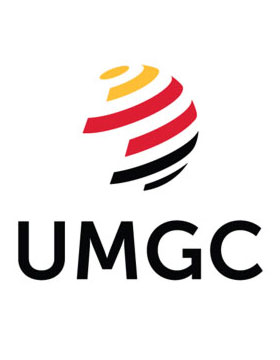By Thomas Moriarty
Expanding and diversifying University of Maryland Global Campus’s (UMGC’s) population of learners is one of five priorities at the heart of the university’s new strategic plan. Strategic partnerships will be key to achieving this goal, as UMGC President Gregory Fowler explained to participants at a recent leadership summit.
Serving these populations sometimes requires that we be willing to “go back to the basics and ensure that we have a clear sense of our mission, to understand what we do well and what must improve,” Fowler said. “In some cases, it means [pursuing] innovative partnerships with organizations or institutions that can augment what we can do—and what we can do at scale.”
The university’s partnerships with Guild and Coursera offer two key examples. Guild is a leading education and upskilling platform that connects employees of some of the nation’s largest companies with universities across the United States.
Coursera, in turn, is a global provider of online courses, and UMGC now grants credit for prior learning experiences both on the job and from noncredit online instruction.
“Both of these organizations, given their large presence and scale in the space, have come to UMGC because they know this is something we can do at a very large scale—evaluate training opportunities for credit,” said Chris Motz, the university’s chief partnerships officer.
Through the institution’s alliance with Guild—which allows employers to invest in their employees through education, career development, and coaching—participating employers are matched with UMGC programs based on a variety of factors, including an employer’s need for a particular skill set or mode of delivery.
Within Guild, UMGC is one of a select group of learning partners chosen based on their capacity to evaluate prior learning. These universities, in turn, review the workplace training and learning experiences available to employees of each employer partner to determine what credit they can award toward a degree or other desired credential.
“In most of these cases, there are multiple [internal] trainings that these companies [offer],” said Emily Ferguson, UMGC’s assistant vice president for client relationship management. The university can articulate credit for both technical training and more general coursework, such as instruction on how to open and close a restaurant. “All of that is evaluated and catalogued for credit, and then Guild shares that information back with the company.”
Through Guild, UMGC programs are now available to more than 150 employers, including Baylor Scott White Health, Bon Secours Mercy Health, Chipotle, Discover, Herschend Enterprises, OSF Healthcare, Tyson Foods, UCHealth, and more. Learners who complete certain courses with Coursera, one of the largest content providers and enablers of its kind, also can now stack their prior learning experiences into one of eight programs, concentrated primarily in cybersecurity and information technology.
Motz said the alliance, which launched as a pilot in September 2023, grew out of conversations with Coursera about how to create opportunities for stackable learning experiences that would appeal to learners who had already completed degrees at other institutions. Since the launch, Coursera has established dedicated landing pages to market the UMGC programs to its customers.
“The exciting part about this is the opportunity to reach these populations [that] had been looking to upskill but hadn’t necessarily considered getting another degree,” he said.
Both Motz and Ferguson emphasize that UMGC’s experience articulating credit for prior learning uniquely equips the institution to open doors to new groups of learners through these kinds of partnerships.
“You would think a lot of these types of organizations are committed to building these kinds of stackable credentials or pathways, but it is really unique to actually have a mapped out pathway for these training programs,” said Ferguson. “This is an established path for these students.”
This article appears in the 2024 issue of Achiever magazine.

Share This